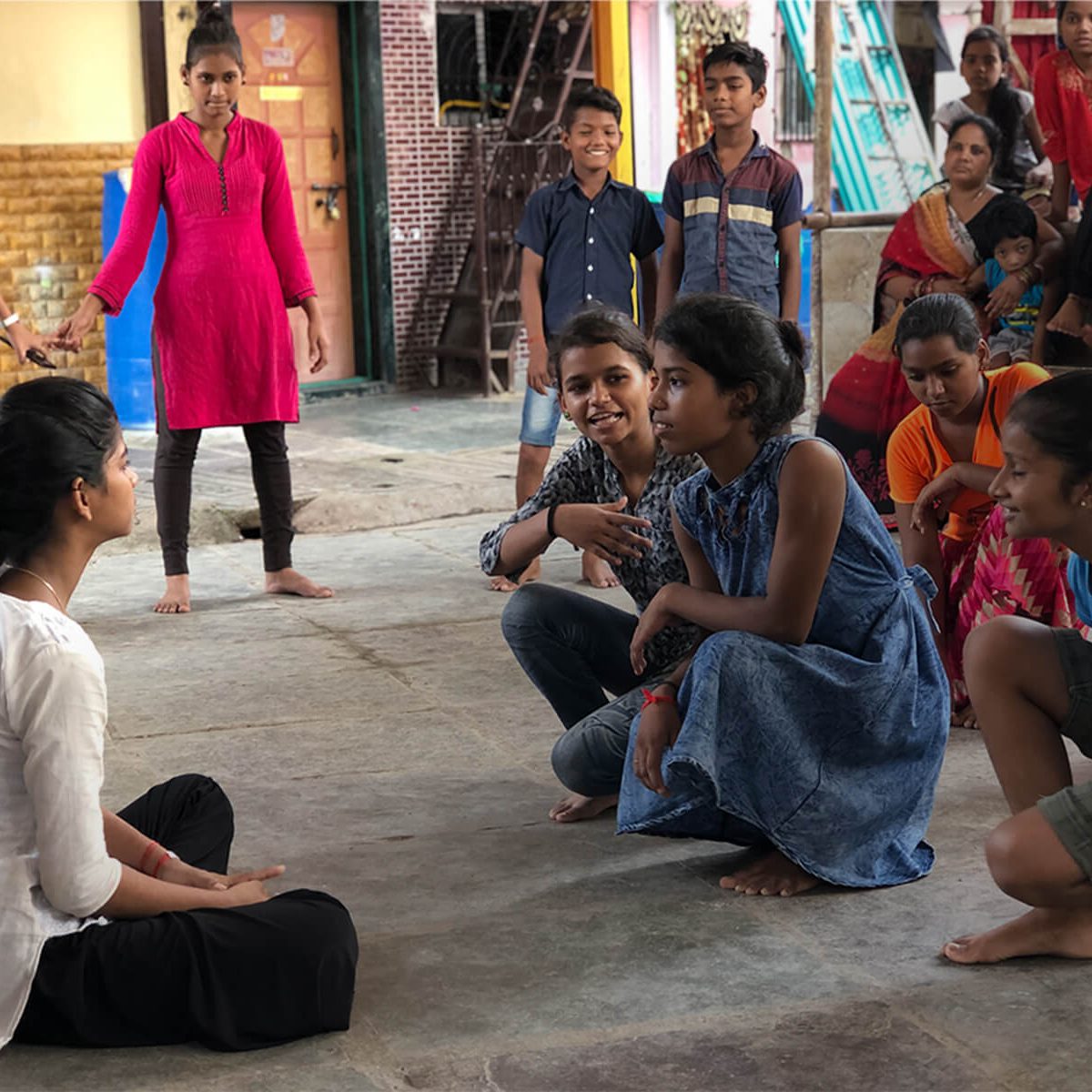
Blog
“A young woman who resides in the basti is with me and was part of the group trying to advocate for sanitary toilets. ”
Toilets
By Kendra Nicolai, Shadhika’s Program Officer
August 4, 2019
Reading Time: 3 minutesThis is my first time walking down a lane, which is a small, three-foot-wide alley in which 5000 people reside. We were walking to the toilets, which was passionately talked about during a meeting with girls who are trying to make change in their basti (slum). Walking towards the toilets I notice piles of trash everywhere and as we near the toilets this trash becomes immense. We finally come upon the toilets. There are 12 toilets, 8 for men and 4 for women. 5000 people who reside in this basti use these 12 toilets. Looking around I notice a dog laying in one of the women’s toilets and a pig wandering near a second toilet. The men’s toilets have tile, are elevated on steps and are covered by a secured roof. The women’s toilets are located down from the men’s toilets, are made of cement, are located in the middle of a trash dump and have no structural support. The windows to the women’s toilets are bashed in and there are no lights. I am told that in the morning the que for the women’s toilets goes all the way through the lane. I am also told that at night this area is a hot spot for rape.

A young woman who resides in the basti is with me and was part of the group trying to advocate for sanitary toilets. She tells me that she doesn’t use these toilets. I then asked her where she goes and she tells me that her and many other girls wait to use the toilet until they get to school. She refuses to use the trash ridden, unsafe women’s toilets in her own community.
A community organizer says this has become a large problem as girls are getting sick because they are refusing to use the toilet. She has even encouraged them to walk 20 minutes to their office where there is a private toilet. I ask the young woman if she would be willing to take a photo near the toilets. She hesitates. She said she is ok doing it but doesn’t want her face shown. Advocating for girl’s rights in her basti is discouraged.
Changing views of women in this community will take many voices and it is evident that these girls need change. As part of the Shadhika Scholarship, scholars are required to implement a community project to help change issues such as the sanitation issue in this basti. The hope is that these young women receiving scholarships will create a ripple effect that can help younger girls feel empowered to create change in their own communities. When she leads, change follows.
Read more